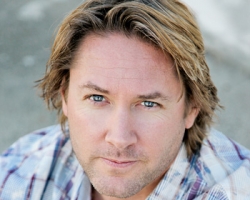That was the message of former Rep. Patrick Kennedy (D-Rhode Island). His uncle, President John F. Kennedy, inspired Americans to shoot for the moon. Now that we’ve explored outer space, the younger Kennedy said, it’s time to explore inner space – the brain.
The Didi Hirsch Mental Health Services’ Erasing the Stigma awards luncheon last Friday was even more inspiring than I was prepared for. Mental health advocates laid out a vision of a world in which families suffering from the affliction of drug/alcohol addiction or other mental health issues could find hope and solace.
Dr. Kita Curry, the CEO of the Culver City-based non-profit, was tremendously optimistic in her efforts to erase the stigmas associated with mental illnesses. She spoke of her difficulty growing up in an abusive home and of the effects of suicide by her own family members.
“Thank God I had a [crappy] family,” Curry told an audience of 500 people. “Because I am really great at handling catastrophes.”
Her message, however, was that we are all one big family – a dysfunctional family, to be sure, but a family nonetheless.
Kennedy shared an inspiring vision of his own: a united effort to unlock the secrets of the human brain. He used the analogy of the 405 Freeway, suggesting that everyone involved in seeking a cure for mental illness was traveling the same stretch of freeway, but that each get off at different exits along the way. But everyone is on the same road. If we all work together, he suggested, we could pool our efforts and find cures for every variety of mental illness. It is encouraging to consider the possibilities of a collective effort.
Actor Ed Harris pointed out that nobody chooses mental illness. Curry said it’s as immutable as the color of one’s skin. She also explained that stigmas are the result of prejudice and misinformation. It takes courage to fight deeply ingrained stereotypes, and it is admirable to see advocates like these striving to erase the stigma.

